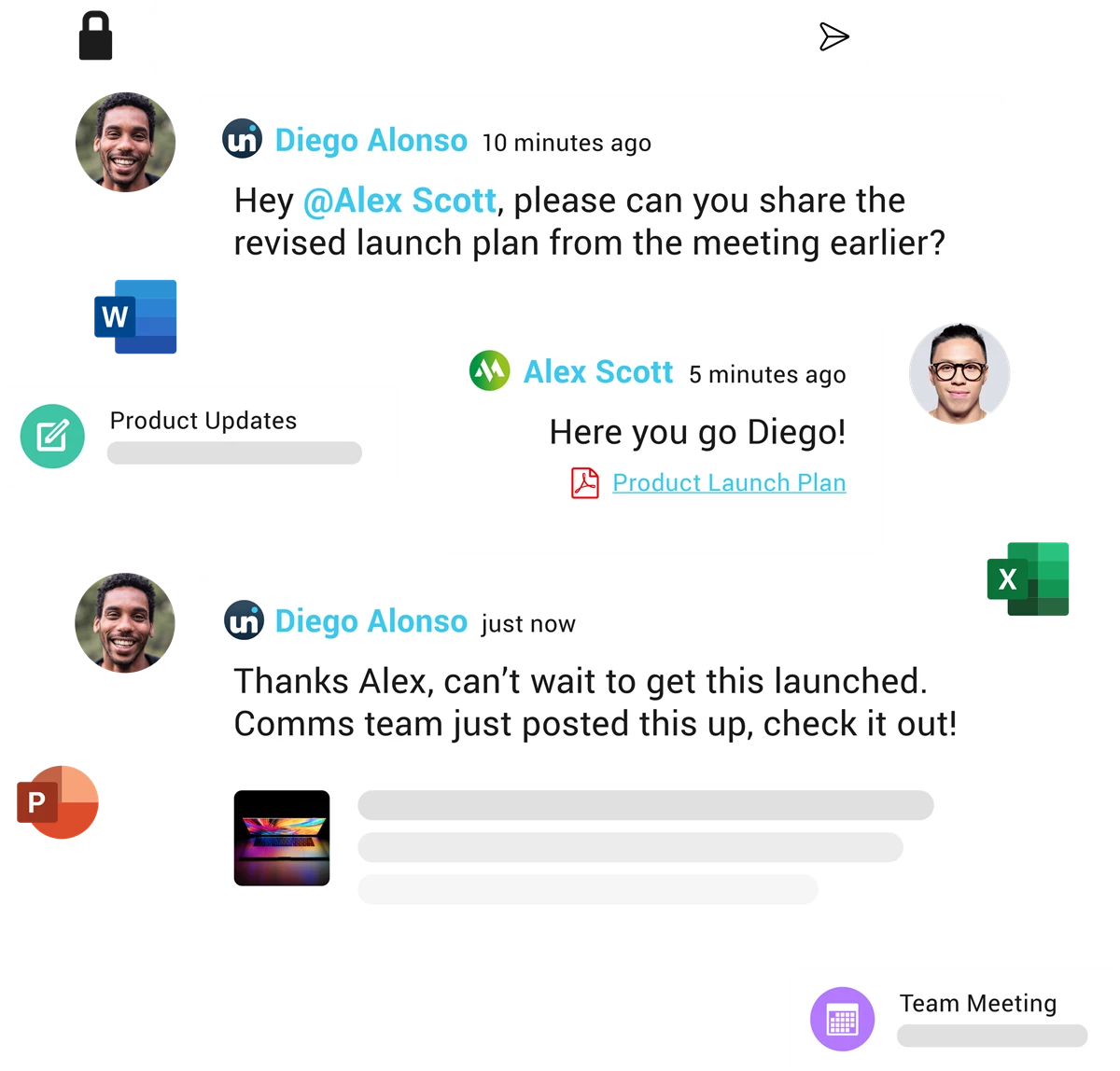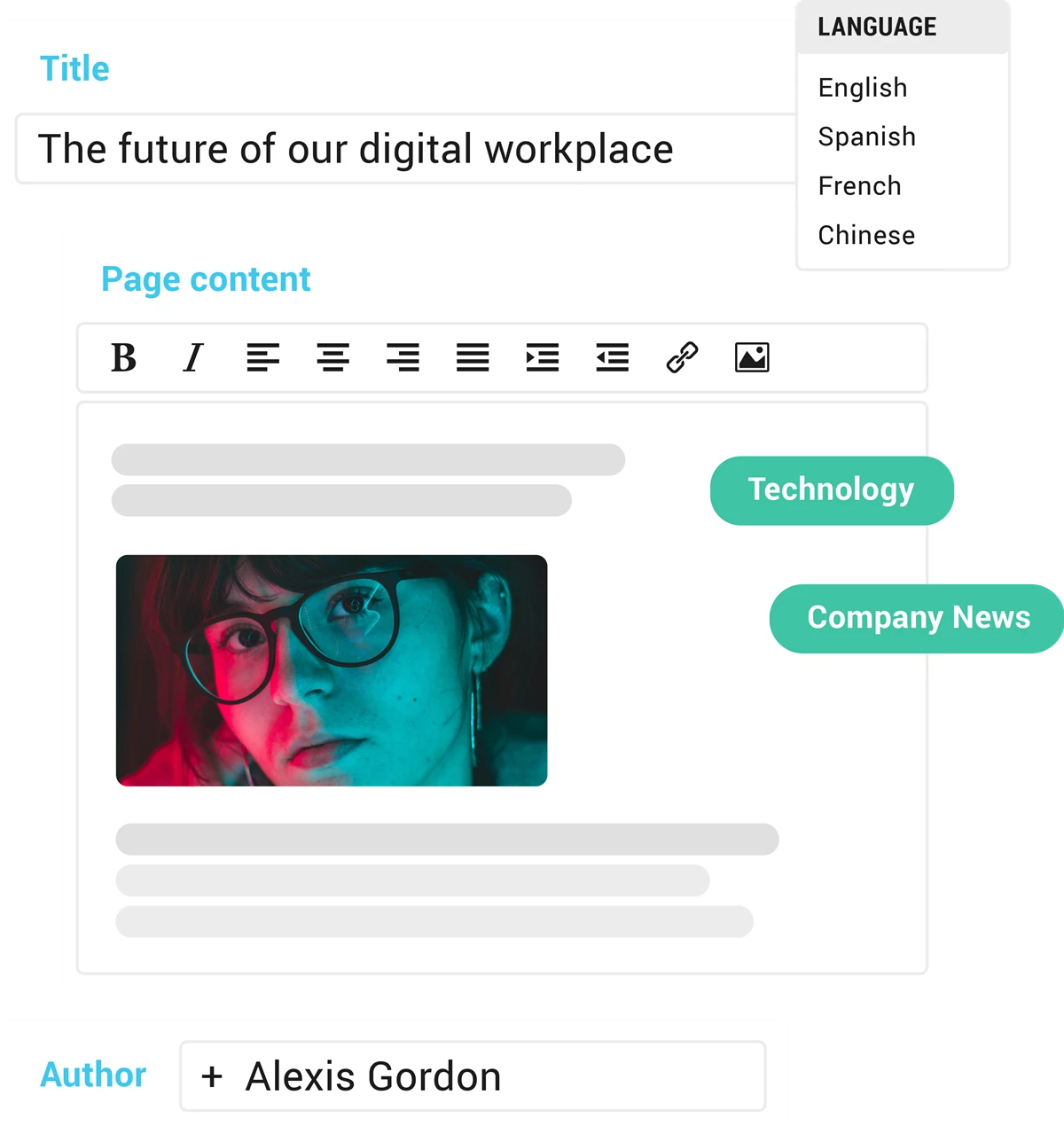Pave the way for productivity by equipping your workforce with faster access to collaboration tools. Unily delivers a single pane of glass experience that empowers everyone to work efficiently and take full advantage of your enterprise's collective insights.
"We needed the design to be super elegant and the UX had to be really strong. It needed to be multi-sensory so users want to reach out and touch it, then talk about it and use the social features to take that message, and what they've learned, and share it with other employees."
"The Unily platform allows our employees to access relevant content more quickly, choose how and when they stay informed and take advantage of opportunities to collaborate more effectively with colleagues."
"As our colleagues are used to using Facebook, Twitter, and so on - to have the same great user experience with an internal tool is a gift for them."
Keep the conversation around new projects and initiatives alive through dedicated social channels and discussion forums. Encourage workplace collaboration with familiar social experiences that give everyone a voice.
Unlock collaboration and innovation by turning your intranet into a home for ideas with a pre-built ideation hub. Give employees a way to submit new ideas, collaborate and use social features like commenting, upvoting, and leaderboards to keep track of what's popular.
Give everyone the opportunity to share insights with an intuitive intranet CMS that makes it easy for anyone to spin up compelling content quickly. Employee's can also publish content without CMS access through front-end publishing, ensuring collaboration across your entire business.
Discover new data highlighting the negative impact of digital interruptions on wellbeing and productivity across Financial and Professional services
Constant platform switching can be a drain on employee efficiency. Unily delivers seamless integrations and single pane of glass experiences that take productivity to the next level. Link up with existing collaboration software you have within your business and enable quick access from your intranet homepage.
Searching for information takes time. A Google-like search experience makes it quicker and easier to find answers, empowering your workforce to make more informed decisions.
Employee collaboration is when individuals work together in a coordinated and cooperative manner to achieve shared goals and objectives within a workplace. It involves communication, idea sharing, and joint efforts to accomplish tasks and projects. Workplace collaboration software is one example of a tool companies can use to inspire and encourage employee collaboration.
Workplace collaboration contributes to individual and organizational success in several ways. Three key benefits are:
Digital collaboration, supported by workplace collaboration software, is crucial due to its ability to:
An example of digital collaboration among employees is when a team is spread across different locations and must utilize online tools and platforms to collaborate on a project. This could involve using video conferencing software, cloud-based document sharing, project management software, and communication tools like auto-translations to work together effectively.
Workplace collaboration refers to employees’ collective efforts to work together, leveraging their skills and knowledge, to achieve common business objectives within an organization. It involves sharing information, collaborating on projects, and creating a culture where teamwork is encouraged. This collaboration can be further supported through the adoption of digital tools.
Companies can use workplace collaboration software to achieve digital collaboration among workers. This technology can improve innovation, problem-solving, and overall organizational success, allowing employees to collaborate wherever they might be in the world through social features and document-sharing capabilities.
Employee collaboration can be classified into four main types:
There are various actions that demonstrate collaboration among employees within a workplace. These may include:









